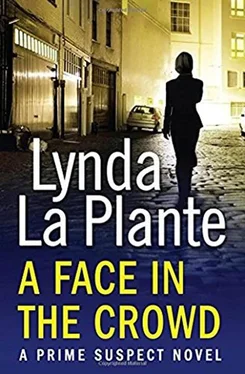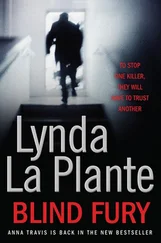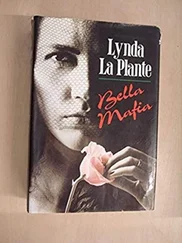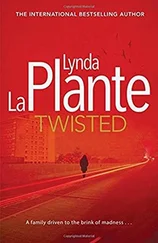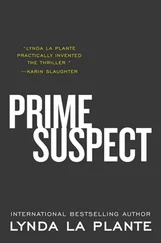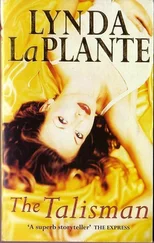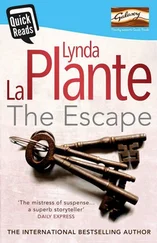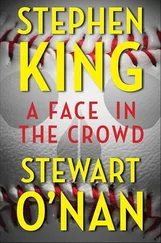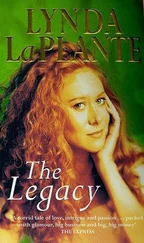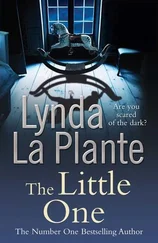Lynda La Plante - A Face in the Crowd
Здесь есть возможность читать онлайн «Lynda La Plante - A Face in the Crowd» весь текст электронной книги совершенно бесплатно (целиком полную версию без сокращений). В некоторых случаях можно слушать аудио, скачать через торрент в формате fb2 и присутствует краткое содержание. Жанр: Детектив, на английском языке. Описание произведения, (предисловие) а так же отзывы посетителей доступны на портале библиотеки ЛибКат.
- Название:A Face in the Crowd
- Автор:
- Жанр:
- Год:неизвестен
- ISBN:нет данных
- Рейтинг книги:5 / 5. Голосов: 1
-
Избранное:Добавить в избранное
- Отзывы:
-
Ваша оценка:
- 100
- 1
- 2
- 3
- 4
- 5
A Face in the Crowd: краткое содержание, описание и аннотация
Предлагаем к чтению аннотацию, описание, краткое содержание или предисловие (зависит от того, что написал сам автор книги «A Face in the Crowd»). Если вы не нашли необходимую информацию о книге — напишите в комментариях, мы постараемся отыскать её.
A Face in the Crowd — читать онлайн бесплатно полную книгу (весь текст) целиком
Ниже представлен текст книги, разбитый по страницам. Система сохранения места последней прочитанной страницы, позволяет с удобством читать онлайн бесплатно книгу «A Face in the Crowd», без необходимости каждый раз заново искать на чём Вы остановились. Поставьте закладку, и сможете в любой момент перейти на страницу, на которой закончили чтение.
Интервал:
Закладка:
But she soon saw that it was useless. Sarah was gripping the wheel with both hands, her head resting between them, her shoulders heaving as she wept uncontrollably. For the time being, at any rate, the question would have to remain unanswered.
The door opened and the mortuary attendant stood there. “Would you like to come this way, sir?”
Vernon Allen rose heavily from the bench and followed him through. Tennison was sitting in the corridor outside. She stood up as Vernon passed, but said nothing and made no move as he went through the white door into the mortuary itself. She sat down again.
Tony Allen was lying on a metal table, covered to the waist by a sheet. His eyes were closed, and but for the puckered purplish circle round his neck, he might have been asleep. Vernon gazed down at him. His eyes were dry. A tiny muscle jumped at the corner of his mouth. Very slowly, he bent forward and kissed his son on the lips.
Tennison stood up as Vernon emerged from the mortuary. He walked past her, looking straight ahead, his face empty of all expression, and went outside into the gray drizzle sweeping down from a dark sky.
When Tennison rang his office she was told that the super was having lunch in the cafeteria. She went up in the elevator, and having no appetite, got herself a cup of black coffee and carried it across to his table. She might grab a sandwich later on, if she felt like it.
Kernan was finishing off apple crumble and custard, watching the lunchtime news. She told him about her visit to the mortuary, and of what Sarah had said. He licked his spoon and held it up to quiet her as a photograph of Tony Allen appeared on the screen.
The announcer was saying, “Tony Allen, who was to have been married this weekend, leaves a fiancée and a three-year-old daughter…”
Kernan dropped his spoon in the bowl and wiped his mouth on a paper napkin. “You can’t pull Sarah Allen in. Not with all this going on.”
He gestured at the television, which was showing “all this,” in the person of Jonathan Phelps. Together they watched the newly elected Labour MP being interviewed outside the House of Commons.
“… today should have been a day of celebration for me and my supporters. Instead, it has turned into a wake as another black man dies in police custody.”
Turning away, Tennison leaned towards Kernan. “I just want to talk to her off the premises,” she said reasonably.
It wasn’t reason enough. Kernan shook his head. “Too soon. Go back to Harvey.”
“He can’t talk at the moment. I don’t know whether he’ll be able to again.”
“Well, then, see where other lines of inquiry lead you. We’ll review the situation in a few days.” He crumpled the napkin and tossed it down, giving Tennison a critical scrutiny. Her makeup couldn’t disguise the lines of tiredness at the corners of her mouth and the slight puffiness under her eyes. “Go home and get some sleep, Jane.”
“Yeah…”
“And leave Sarah Allen out of it,” Kernan ordered. “For the moment.”
He departed, leaving Tennison gazing listlessly at the TV screen, where Phelps was saying, “With all due respect, a system where police officers investigate their fellow officers cannot be sufficiently objective. All too often a blanket of silence falls on the case…”
A shape moved behind the panes of colored glass in the vestibule; the light came on and Tennison saw that it was Vernon Allen. He opened the inner door and peered out, trying to see who had rung the bell.
Tennison tapped on the glass panel at the outer door and pressed her face closer. “Vernon, I have to speak to Sarah…”
He flinched, as if someone had spat in his face. “How dare you come here! How dare you…”
“Vernon, it’s really important that I speak to Sarah.”
“Haven’t you done enough damage?” He was trembling, the outrage in his voice strained and pitiful. “Just leave us alone-”
“But I have to speak to Sarah!” Tennison insisted. She tapped again, urgently, seeing him about to close the door.
“My wife is…” Vernon Allen choked, overcome at the thought of Esme’s grief. The huge man seemed to be physically shrinking. He bowed his head in anguish. “My wife…”
Sarah appeared beside him. “Go inside, Pop. Let me handle this. Go on.”
He shambled off. Sarah stepped forward, tight-lipped, and stared coldly at Tennison through the glass panel, making no move to open the door. Tennison knew she had only a few seconds. She said quickly, “Sarah, were you there that night?”
“I don’t know what you’re talking about.”
“-or has Jason Reynolds spoken to you?”
“I don’t know any Jason Reynolds,” Sarah snapped. “Now leave us alone! I’m closing the door-”
“Sarah, please,” Tennison said, “for Tony’s sake-”
“I’m closing the door.”
She did. The light went out. And that was that.
At first Tennison couldn’t figure out what the screeching noise was, or where it was coming from.
Nearly ten thirty, the station was quiet, and she was on the point of leaving when she heard it. Puzzled, she walked down the empty corridor and pushed through the doors into the Incident Room. All alone, Oswalde was crouched in a chair in front of the TV, the remote control in his hand. The screeching was speeded-up reggae as he fast-forwarded the tape of the Sunsplash concert. He paused it, leaning forward with a fixed, obsessive stare, his eyes glued to Joanne and Tony on the stage.
Tennison moved quietly toward him, frowning to herself. He pressed the rewind and played the same sequence over again, and she could see the tension in the hunched shoulders and the hand gripping the remote.
“Bob,” Tennison said, making an effort to sound casual. “Give yourself a break.”
Oswalde flicked a glance at her and went back to the screen. “You can talk.”
She watched him for a moment longer, then unslung her shoulder bag. She found her Filofax, and scribbled something on a slip of paper and handed it to him. “Call this number. It’s a friend of mine. She helped someone who was at Broadwater Farm. She’s good.”
“A shrink…?” Oswalde was bitterly amused.
“Sort of,” Tennison said. “Listen, there’s no shame in that. Other people make mistakes at work and the firm loses a few grand. We make a mistake and someone loses their life.” It was an argument she used on herself, whenever she screwed up or was feeling depressed.
Oswalde had zapped back and was studying the same sequence all over again, just as intensely as before. Tennison hitched her bag onto her shoulder and turned to go. He was a big boy, and she wasn’t a wet nurse. She stopped as a thought occurred to her.
“Did Mrs. Fagunwa recognize that belt?”
“No.”
Tennison nodded, on her way to the door. “Go home, Bob,” she said, and went out.
The house where Eileen Reynolds lived was a stone’s throw from the tower blocks of the Lloyd George Estate. In fact, Tennison thought, as she knocked on the door, if you threw a stone from Harvey’s balcony it would break one of his sister’s windows.
Eileen opened the door, her arms filled with sheets and pillow slips ready for the wash.
Tennison smiled. “Hello, Eileen.”
Eileen didn’t return the smile. In the clear light of day her face had a hard, pinched look, that of a woman who had lived through a few trials and tribulations in her time, and survived to tell the tale. Her short, bleached hair was showing brown and gray at the roots.
“I’ve been expecting you,” she said, and went inside, leaving Tennison to shut the door.
“I wasn’t lying. He was there with me that weekend. He came down a lot in those days. He had a trailer there. Sometimes he’d stay with me, sometimes at the van.” Eileen stuffed the last of the washing in the machine, straightened up wearily, and banged the door to with her knee.
Читать дальшеИнтервал:
Закладка:
Похожие книги на «A Face in the Crowd»
Представляем Вашему вниманию похожие книги на «A Face in the Crowd» списком для выбора. Мы отобрали схожую по названию и смыслу литературу в надежде предоставить читателям больше вариантов отыскать новые, интересные, ещё непрочитанные произведения.
Обсуждение, отзывы о книге «A Face in the Crowd» и просто собственные мнения читателей. Оставьте ваши комментарии, напишите, что Вы думаете о произведении, его смысле или главных героях. Укажите что конкретно понравилось, а что нет, и почему Вы так считаете.
